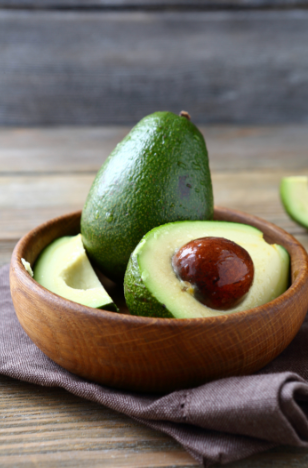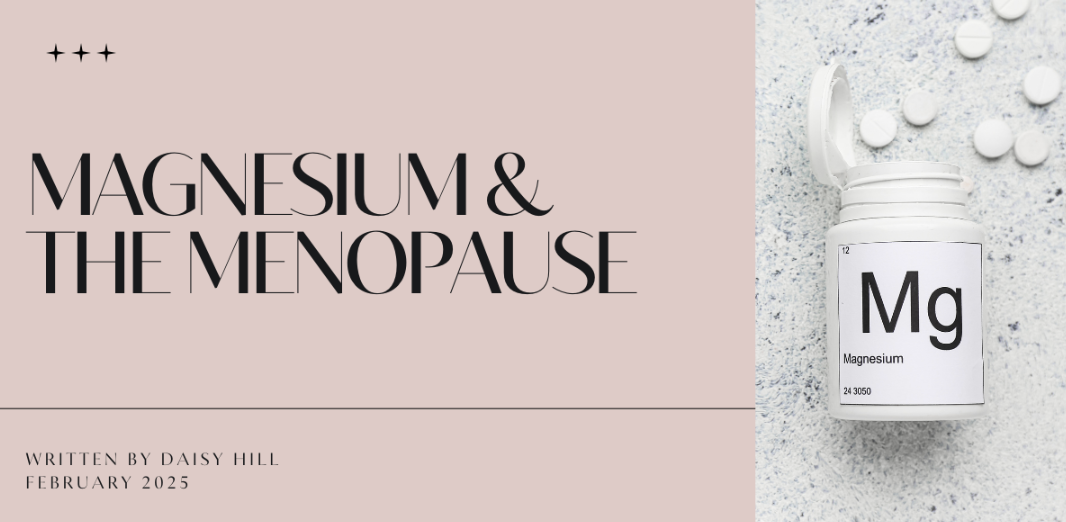Mg and Menopause
Magnesium is a go-to trendy supplement at the moment, but why is that and should you be including more in your diet?
Are you struggling to organise your diet in the most healthy way for
you? Keep reading for top tips to make easy changes.
Many women unknowingly experience magnesium deficiency during menopause, using the hacks in this blog, you can naturally increase your magnesium intake and improve your well-being.
What are the Benefits of Magnesium for Menopause?
One of the most powerful emotions you can tap into is gratitude. By taking a few minutes each day to jot down what you're thankful for, you shift your focus from what you lack to what you have. This simple act can rewire your brain to focus on positives, reducing anxiety and building resilience against stress.
- During the menopause, bone strength is at risk due to lower oestrogen hormone levels. Including magnesium in your diet helps the availability of calcium for bone maintenance. This can help your bones keep their strength, lowering your risk of fractures and helping you to stay active without worry.
- We know that changing hormone levels can come with fluctuating moods. Magnesium has been shown to regulate mood and anxiety therefore, including it in your diet can balance your days and make life more simple.
- Another benefit of magnesium’s regulatory effects is improved sleep quality through a calmer nervous system. This is a problem affecting many women and is contributed to by other symptoms such as night sweats and mood changes. Managing this allows you to be more productive during your day rather than experiencing that dreaded lethargic feeling from a bad night’s sleep.
- With declining oestrogen levels, comes an increased risk of heart disease. Magnesium has been shown to help prevent heart disease by regulating blood pressure, reducing inflammation and supporting muscle function. Ensuring that you have sufficient magnesium in your diet can help reduce heart disease risk and preserve longevity.
So how can you get more Magnesium into your Diet?
Incorporating magnesium into your diet using these easy switches and additions to fit into your busy lifestyle can make all the difference. In the journey to taking control of your diet, it is helpful to know which foods include the most magnesium available for your body to use efficiently and how to adapt them into your diet.
Add leafy greens to your recipes. Stir some spinach into a curry, blend kale into a soup or steam and eat with each meal.
Simply sprinkle nuts and seeds into your morning yoghurt, porridge or cereal adding texture and the all-important magnesium. Nuts are also great to snack on throughout the day. Bringing them along with you in your car or bag makes them an easy go-to.


Not just a trend, avocados contain magnesium and healthy fats which help with nutrient uptake. A highly versatile ingredient, add them to your salads and sandwiches or just scoop them out of their skin as a snack!
To get your chocolate fix, you’ll be happy to hear that dark chocolate is a good source of magnesium. For the best magnesium source use 70% cocoa to snack on or have after a meal.
Mackerel and other oily fish are great sources of magnesium. Stir into a stir fry, blend to make a mackerel patȇ or just as they are with a squeeze of lemon. One portion of oily fish is recommended for many health reasons, not just magnesium content. So, increasing your intake can have many other benefits
TOP TIPS to Maximise Your Magnesium
- For absorption, magnesium needs a helping hand from vitamin D. Ensure that you have a sufficient supply by containing it in your diet, especially in winter with lower sunlight exposure. Oily fish is a great source of vitamin D as well as magnesium. So eating it regularly is a double whammy! Eggs and dairy are also high in vitamin D. Alternatively, fortified cereals plant milks or even a simple cod liver oil supplement can be used if convenience is what you are after.
- Unsurprisingly, staying hydrated not only contributes to general well-being but can help with the absorption of magnesium. Carry your preferred water bottle with you throughout your day continuously sipping - eventually, this will become an easy habit.
- Always consider your gut health. As magnesium is absorbed in this area, it is important to keep it happy and healthy. Eating lots of fibre and even taking trusted pre and probiotics will help maintain your gut microbiome and, therefore, the absorption process.
- If you do decide to take a supplement, ensure that you are not taking too much of the chosen vitamin and that the vitamin is in the correct form for absorption.
Incorporating magnesium-rich foods into your diet can be a powerful tool for women negotiating menopause symptoms. The Oxford Clinic for Nutrition can help you navigate dietary changes by working around your preferences, allergies, and lifestyle, giving you friendly, helpful and achievable advice and goals without judgment.
The Oxford Clinic for Nutrition
24 Barley Close, WallingfordUnited Kingdom












